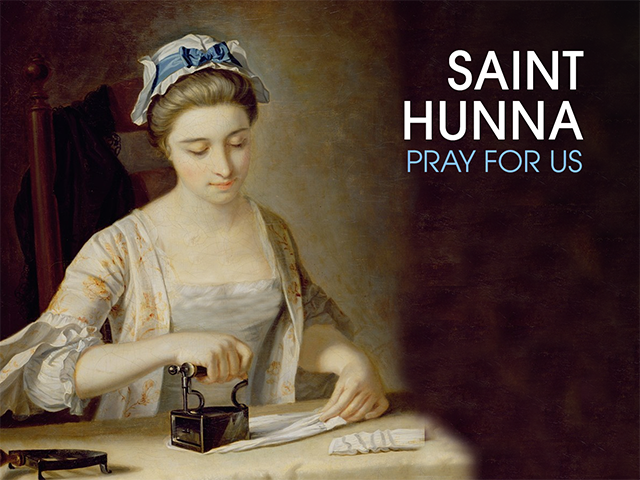



St. Hunna (d. 679 A.D.) was born in Alsace, France. She was the virtuous daughter of a duke, and she married a similarly virtuous nobleman. Hunna and her husband did not indulge in unnecessary luxuries according to their high state in life, and instead detached themselves from their riches by opening their home to the poor and assisting them in their need. St. Deodatus, a bishop who resigned from his See, came to live with the holy couple for a time. St. Hunna and her husband greatly profited from his religious instruction and grew in sanctity as a result. When Hunna bore a son, she named him after St. Deodatus. This child, raised by such holy parents, later joined a monastery and also became a saint. After her husband's death Hunna continued to spend her life serving the poor, especially women. No task was too menial for her. She tended to the poor and the sick and regularly, including their laundry and mending, even to the point of exhaustion. For this she was nicknamed the "Holy Washerwoman." She also gave away her wealth and property to build churches and monasteries. So many miracles were attributed to her that Pope Leo X canonized her in 1520. St. Hunna is the patron saint of laundresses and her feast day is April 15.